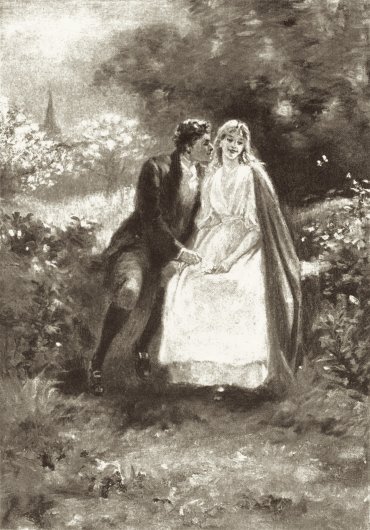 If you’re a genre writer, you’re probably a romance writer. But no, you say? You write fantasy, or science fiction, or mysteries, or…doesn’t matter. One thing about us genre writers, to some extent our genres usually mix, and the most common secondary element is romance. There’s a reason that so many writers from so many genres show up at the romance-centered panels during conventions. For many of us, romance is a strong sub-plot that runs through most of our fiction. So, why should we use it, how should we use it, and to what degree?
If you’re a genre writer, you’re probably a romance writer. But no, you say? You write fantasy, or science fiction, or mysteries, or…doesn’t matter. One thing about us genre writers, to some extent our genres usually mix, and the most common secondary element is romance. There’s a reason that so many writers from so many genres show up at the romance-centered panels during conventions. For many of us, romance is a strong sub-plot that runs through most of our fiction. So, why should we use it, how should we use it, and to what degree?
Every element of interest we add to our story increases the level of interest to readers. Of course, we don’t want some eclectic hodgepodge, but who doesn’t love a good fantasy book with elements of horror, mystery, and romance. Sometimes we substitute the romance with the growth of a friendship or business partnership, but that relationship growth is something that carries us along. It gives the story focus when the main plot needs a hiatus, when the bad guys are readying their next assault, when the good guys are recovering or regrouping. Some type of relationship story, in some form, is almost always fundamental to a good book. We need those relationships in order to become truly invested in our protagonist’s well-being.
Integrating romance into a story is like adding spices to a good pumpkin pie. The crust may have no extra flavor, but it’s taste is influenced by the spices running throughout the filling. And the best pies will have the occasional design on the crust, maybe a cut-out leaf or a small pumpkin, with plenty of cinnamon and sugar sprinkled on top that gives our palates a surge of the wonderful flavors within. So, in a good story. Hints of the relationship will flavor the entire story: a look, a touch, a comment, a moment of inner dialogue. But then we will have the turning points in the relationship, where it takes center stage, even if only for a few paragraphs; the moments when the relationship moves to the next level. This may be the moment when the protagonist realizes he has feelings for his love interest, maybe their kiss, maybe more. It may be a point where the protagonist realizes his contagonist isn’t his enemy but can become an ally. Moving this story arc in concert with the main story will make a more intriguing book. These sugar-coated biscuits dotting the crust move us eagerly through the story as much as the action scenes, giving our tales more depth and emotional resonance.For anyone needing help with this, let me refer you to David Farland’s book, Million Dollar Outlines. I attended the workshop, but I’m sure the same tools and techniques are discussed in the book.
What level of romance or relationship we use can vary from book to book or author to author. For the best discussion I’ve yet seen on the subject, I refer readers again to David Farland and his writing tips at www.davidfarland.net. Though romance may lead to a sexual relationship, romance itself is the process of falling in love. I think most readers, even men, enjoy participating in that process. Some readers would like to see that romance go to the next level, with every sexy detail, while others would rather have the door closed and know the protagonist and their love interest lived happily ever after. Which is right for you, as a writer, is a very personal decision. I will say though, when you put romance in your books, or any other kind of relationship, learn how to do it right. Just as a reader won’t accept a moral, honest character suddenly stealing a horse and knifing their victim, they won’t accept a usually open and forthright person suddenly clamming up about their feelings for the sole sake of adding tension to a relationship. Keep your actors in character, in ALL situations.
For me, romance is the cinnamon in my cinnamon rolls, my favorite flavor in fantasy and science fiction. Even my upcoming horror short story, Demon River, has an element of romance that helps us root for a very troubled and difficult protagonist. Love makes the world go around, whether it be this one, a planet galaxies away, or the fantastical ones of complex imagination.

So true, Colette. And with all this love running around everywhere, I don’t understand why romance is such a dirty word to so many writers and readers. I liked your point about the romance sometimes being a friendship or business relationship growing closer or more deep.
Thank you, Clancy. My mother was an avid romance reader when I was young, and though I called her books trash (not because of the content, but because you could read one in an afternoon) I think they kept her sane through our teenage years. And when I wanted a quick read, I’d pick up one of her books, and I usually enjoyed it. A good romance, or even friendship story, lifts our spirits when life gets us down, which is why romantic comedies always do consistently well in the movie theaters. Thanks for your comment.